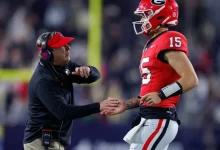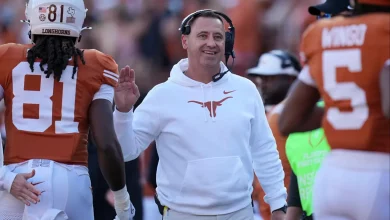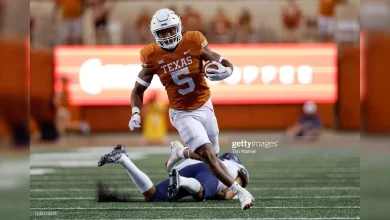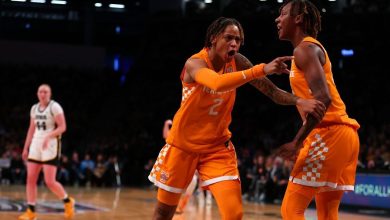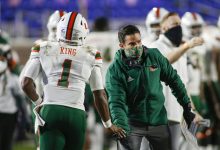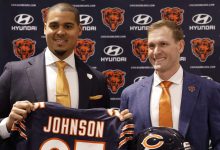Cole Cubelic raises concerns about Hugh Freeze’s coaching style and Jackson Arnold’s readiness, warning of potential challenges ahead for Auburn’s team development and performance.

In the ever-competitive landscape of college football, coaching philosophies and player development are often subjects of intense scrutiny. Analysts, former players, and fans alike watch closely as programs navigate transitions, seeking stability and success. Recently, Cole Cubelic—a respected college football analyst and former Auburn offensive lineman—voiced notable concerns regarding Auburn’s current trajectory, specifically highlighting doubts about head coach Hugh Freeze’s coaching style and the readiness of quarterback Jackson Arnold. These concerns have sparked debate about the direction of the Tigers’ program and whether they are positioned for sustained success.
This comprehensive analysis delves into Cubelic’s viewpoints, exploring the nuances of Freeze’s coaching approach, Arnold’s development challenges, and the broader implications for Auburn’s team-building efforts. We will also examine the potential risks and opportunities facing Auburn as they attempt to re-establish themselves as a formidable force in college football.
Cole Cubelic’s Perspective: Context and Concerns
As a former Auburn player and now a prominent college football analyst, Cole Cubelic’s insights carry weight within the college football community. His concerns, voiced publicly through media appearances and social media, reflect a cautious outlook on Auburn’s current state, emphasizing the importance of coaching stability, player development, and strategic clarity.
Cubelic’s primary reservations focus on two interconnected issues:
- Hugh Freeze’s Coaching Style and Fit
- Jackson Arnold’s Readiness and Development
Understanding these concerns requires a deep dive into each aspect, considering the context of Auburn’s recent coaching changes, roster dynamics, and recruiting strategies.
Hugh Freeze’s Coaching Style: A Double-Edged Sword?
Hugh Freeze, known for his offensive ingenuity and competitive spirit, arrived at Auburn with high expectations. His previous success at Ole Miss, characterized by explosive offenses and a bold approach, made him an appealing choice for Auburn’s leadership. However, concerns have emerged about whether Freeze’s coaching style aligns with Auburn’s culture and the demands of sustained success.
Key Characteristics of Freeze’s Coaching Style:
- Offensive Innovation: Freeze is renowned for designing high-powered offenses, emphasizing quick-strike capability and creative play-calling.
- Aggressiveness: His teams often play with an aggressive mindset, both offensively and defensively, sometimes risking turnovers or risky plays.
- Adaptability: Freeze is flexible schematically, tailoring his game plans to exploit opponent weaknesses.
- Relentless Recruitment: He is known for his energetic recruiting efforts, aiming to rapidly rebuild rosters.
While these traits have yielded success at previous stops, critics like Cubelic raise questions about potential downsides:
- Inconsistency and Discipline: Freeze’s aggressive style can sometimes lead to penalties or mistakes, especially if players aren’t fully disciplined.
- Cultural Fit: Critics wonder if Freeze’s approach meshes with Auburn’s traditional values and whether his style might create friction or inconsistencies within the team culture.
- Developmental Focus: Some argue that Freeze’s emphasis on immediate results might overshadow long-term player development, risking the growth of younger players.
Potential Risks:
- If Freeze’s aggressive style leads to frequent turnovers or penalties, it could hamper Auburn’s ability to close games.
- A coaching style perceived as too risky or unpredictable might undermine player confidence or lead to inconsistent performance.
- If players struggle to adapt quickly to Freeze’s system, it could result in a talent mismatch or stagnation.
Opportunities and Counterpoints:
- Freeze’s offensive creativity could revitalize Auburn’s attack, making them more competitive offensively.
- His experience and competitive drive could instill a winning mentality.
- With proper cultural integration and coaching adjustments, Freeze’s style might evolve into a balanced approach.
Cubelic’s concerns highlight the importance of coaching culture and strategic fit, emphasizing that success depends not just on schemes but also on leadership compatibility.
Jackson Arnold’s Readiness: The Quarterback Conundrum
Auburn’s quarterback situation has been a topic of intense debate, especially with the arrival of Jackson Arnold, a highly touted recruit from Oklahoma. Cubelic’s concerns center on Arnold’s maturity, experience, and whether he is prepared to lead Auburn’s offense effectively amid the team’s current challenges.
Assessing Arnold’s Profile:
- High-Profile Recruit: Arnold was one of the top quarterbacks in his recruiting class, known for his arm talent, mobility, and football IQ.
- Limited Experience: Coming from a competitive program at Oklahoma, Arnold has limited game experience at the college level.
- Developmental Needs: He is still refining his decision-making, reading defenses, and adjusting to the speed of SEC defenses.
Cubelic’s Concerns:
- Readiness to Lead: Despite his talent, Arnold’s lack of extensive game reps raises questions about his ability to handle Auburn’s offense under pressure.
- Mental Maturity: Transitioning from a highly ranked recruit to a college starter requires mental resilience. Cubelic worries whether Arnold has fully developed this aspect.
- System Fit: It’s uncertain whether Arnold’s skill set seamlessly aligns with Freeze’s offensive schemes, or if he needs further refinement.
Implications for Auburn:
- Inexperience Risks: Relying on a quarterback with limited game experience can lead to turnovers, inconsistent play, and missed opportunities.
- Development Timeline: If Arnold isn’t ready to start immediately, Auburn might face early-season struggles, affecting team morale and confidence.
- Potential for Growth: Conversely, if Arnold receives proper mentorship and development opportunities, he could become a dynamic leader for the Tigers’ future.
The Broader Context: Team Development and Performance
Cubelic’s red flags extend beyond individual coaching and player readiness, touching on systemic issues within Auburn’s program:
- Stability and Continuity: Frequent coaching changes and roster turnover can hinder player development and team cohesion.
- Recruiting and Talent Acquisition: Building a roster capable of competing at SEC levels requires sustained recruiting success, which is still a work in progress.
- Player Development Infrastructure: Effective player development involves not just talent acquisition but also coaching, strength and conditioning, and mental preparation—areas where concerns have been raised.
Potential Challenges:
- If Freeze’s coaching style doesn’t resonate with players or staff, it could impact buy-in and performance.
- An unready quarterback could lead to early-season struggles, affecting confidence and momentum.
- Lack of strategic clarity or consistency might give opponents an advantage.
Potential Opportunities:
- If Freeze adapts his style to fit Auburn’s culture and invests in player development, the program could rebound quickly.
- Arnold’s talent, if nurtured properly, might become a cornerstone for Auburn’s future success.
- Focused recruiting and staff adjustments could stabilize the program for long-term growth.
The Path Forward: Addressing Cubelic’s Concerns
To mitigate the red flags raised by Cubelic, Auburn’s leadership must focus on several key areas:
- Coaching Culture and Style:
- Freeze should assess whether his aggressive approach needs balancing with discipline and strategic consistency.
- Emphasizing player development and cultural integration can build a resilient, cohesive team.
- Quarterback Development:
- Arnold must be given time, mentorship, and tailored coaching to accelerate his growth.
- Incorporating experienced quarterbacks or mentors might ease his transition.
- Team Building and Stability:
- Focus on recruiting and developing players who fit Freeze’s system.
- Establish clear roles, expectations, and a long-term vision to foster stability.
- Communication and Transparency:
- Open dialogue with fans and media can build trust and manage expectations.
- Clear strategic plans demonstrate commitment to sustainable success.
Balancing Ambition with Caution
Cole Cubelic’s concerns about Hugh Freeze’s coaching style and Jackson Arnold’s readiness highlight the delicate balance Auburn must strike as they rebuild. While Freeze’s offensive innovation offers exciting potential, it must be tempered with discipline, cultural fit, and strategic patience. Similarly, Arnold’s development needs careful nurturing to become the leader Auburn envisions.
The challenges are significant but not insurmountable. With strategic adjustments, focused player development, and a cohesive team culture, Auburn can address these red flags and set a foundation for future success. However, ignoring these concerns or rushing outcomes could jeopardize the program’s stability.
In the end, Auburn’s path forward depends on strategic patience, adaptability, and a commitment to building a sustainable program that aligns coaching philosophies with player growth. Cubelic’s insights serve as a valuable reminder that success in college football hinges not just on talent or schemes but on culture, leadership, and long-term vision.

